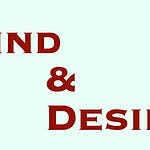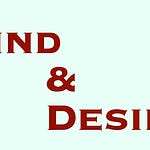Today I had an interesting conversation that in many respects was a repeat of a number of other conversations I've had in the past where there's a theme that comes up over and over again having to do with philosophy, but not just philosophy in the abstract. Particularly philosophy, we could say in its great thinkers, the ones who form a sort of canon in Western philosophy.
And that canon actually needs to be rather deep and broad and diverse. Otherwise, it's not really a canon. It's just kind of a little bit of a club that people like to hang out in. It would include people that come to mind like Plato and Aristotle and David Hume and Rene Descartes and Immanuel Kant. But it should also include a whole host of thinkers from ancient, medieval, early modern, late modern philosophy. Probably it should be so extensive that any one given person would look at the list and say, oh wow, here's somebody on here who I haven't actually read, but maybe they're worth checking out.
Now coming back to the conversation, the thematic involved is that somebody says, wow, I didn't know that this kind of thought with its particular useful application was actually out there, or I didn't know that these thinkers who I've heard about actually had these really cool and interesting and potentially useful things to say.
In the case of the person I was talking with today, they were coming from a background where they'd had one philosophy class in college, and it was a formal logic class, so they didn't really learn much about any particular thinker or delve into texts. And they'd recently become aware of at least with certain philosophers just how much they had to offer and they were thinking: well why didn't I get this in the course of my education, particularly in high school, and then in college, and then in professional studies later on
Why wasn't anybody introducing me to, for example, what Aristotle has to say about having decent conversations with people by using something that gets called dialectic. There are a lot of other ways in which this sort of thing can arise as well.
It's very common if you did study philosophy, but you did so in a way what we call analytic philosophical tradition department, that you're probably not going to get much deep reading of texts and thinkers, because analytics typically don't read an awful lot. They like to stick to small portions of texts. The more that they actually, like for example, Robert Brandom, pay attention to thinkers and their works as a whole, the less analytic they tend to be over time. So the general tendency is to say, we just want the arguments. We just want the gist of it. Don't bother to read all of Bentham or Kant or whoever it's going to be.
You might think that on the other side of the so-called analytic continental divide: that it would be a bit better. But what we see, unfortunately, happening there, as well as in departments and programs that share a similar kind of approach and canon, for example English departments that are really into, say, Derrida and all of his successors, what we see instead is they don't spend much time on the pre-19th century thinkers unless that's the flavor of the day.
And they're going to read certain things and highlight those but you won't go to a department like that and get a really solid introduction to Plato or Aristotle, let alone somebody like Cicero or Plutarch or Augustine or any of these other thinkers.
If you know much about the current landscape of philosophy, then you'll say, okay well, if you didn't get it from going to a place which really doesn't do philosophy much at all, or in an analytic department or a continental department, well, I know where you'll get this sort of stuff, and you'll get it good. It'll be in some sort of school that either specializes in history of philosophy or takes a kind of classical Great Books approach. And you'd think that would be the case.
However, even there, what you find is it's pretty hit or miss because a lot of the places that bill themselves as providing a classical education don't really do much of that. They may teach some Aristotle, but usually in a way that goes against the very spirit of Aristotle's texts, which are all about, you know, inquiry and thinking through issues. They often will treat Aristotle as if he's just a precursor to Thomas Aquinas, or he's articulated these wonderful principles once and for all, and they ignore the, let's call it, dialectical aspects of Aristotle's own texts.
And we could say the same about people reading Cicero or Plato or Augustine. Thomas Aquinas is particularly subject to that sort of treatment. So there's a lot of ways that one can go and then later on find out by actually reading the texts of philosophers just how much they missed out on. It can come from a lot of different backgrounds in this respect.
And interestingly, what I've observed with this is that there's an entire spectrum running from irritation and frustration on one end all the way up to rage on the other end. And what is this spectrum? Well, this is the continuum of the broad emotion of anger. where we have sort of a low-grade thing on one side, frustration, and we have full-blown anger beyond anger, rage, fury on the other hand, and everything in between.
And ironically, if you want to know about that, well, there's all sorts of great philosophical resources on that in the Western tradition. You probably heard me talk about quite a few of them. Aristotle is one of the thinkers who does, in fact, tell us an awful lot about that emotion. Seneca would be another one. He wrote an entire book on anger. And one of the common elements to the philosophical treatments of anger is that there's a realization it's a complex emotion and it arises out of the perception that some sort of wrong has been done to you or to others.
Somebody or something that you care about or feel responsible for or identify with. And that wrong is unjust. It shouldn't have happened. And so you desire to respond in some way that would set this right by punishing, by retaliating. And that's what anger at its core really involves. There's more to it than that.
We don't have to worry about the other elements because what we're really interested in here is that emotion so often arising in relation to realizing that what you studied is didn't actually give you what you see you could have gotten, what you should have gotten, right? There is an ought, a moral obligation there that you feel has been violated in some way.
And especially if you paid for that education, you would be rightly thinking, I paid all this money. Why didn't I get what they should have provided me with? And quite often, the answer is they didn't know any better than you. Those people who were teaching you, who were setting up the curriculum, they probably were themselves fairly ignorant and in an unphilosophical way, relying uncritically on what other people had to say about where you would actually go to find the cool stuff that now you're discovering.
And what we see all too often, I think this is quite surprising to people who imagine that philosophers are all these hyper-rational people, which indeed they're not. What we see happening is a replication of a vicious circle. So we'll take an example in continental philosophy. Why would you read Aristotle?
You know that he's committed to a substance, metaphysics, and an ethics that focuses on virtue. We know that these sorts of concepts have been used in ways that go against human dignity, or are logocentric and phallocentric, or not rhizomatic enough, or pick whatever flavor of the day you've got for the cool kids ideas that are being bandied about.
So we don't need to actually read Aristotle. It's enough that we criticize him and then move on to the more interesting stuff that we're going to talk about and what happens we have generations of people who don't actually know what's there in Aristotle's works
This could equally happen in a great books program where people have far too narrow conceptions about what Aristotle is teaching and what his method is and ideas like that. And they just transmit that to their students in a dogmatic fashion.
The remedy for this is pretty straightforward and simple. You got to actually read the texts and see what's in there. And until you do that, you really don't know, do you? And if an expert claims that they know exactly what's in those texts, but they haven't read them recently, you should probably be a little bit suspicious of that self-proclaimed or proclaimed by many others expert.
In the end, the remedy is not to get angry and say there ought to be a law, we ought to change things. It's much lower level. You can change it for yourself. You can find other people who are, in fact, reading these thinkers and texts and talking about the important issues. And if you want to incorporate any of those insights into your own life and thinking, there is literally nothing stopping you except the demand on your own part that somebody else go along on the journey with you.
Somebody who probably is invested in going on a different journey. So this is a topic I probably need to do some writing about because I've been thinking about it for quite a long time. Having encountered this sort of realization and then reaction on the part of so many of the people I have talked to over the years.












Share this post